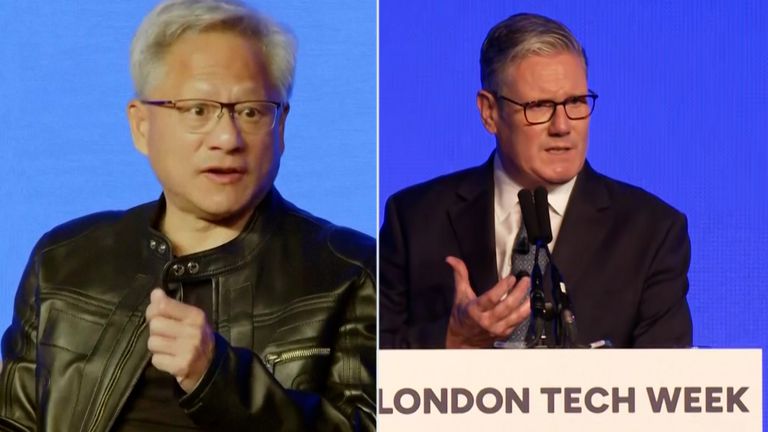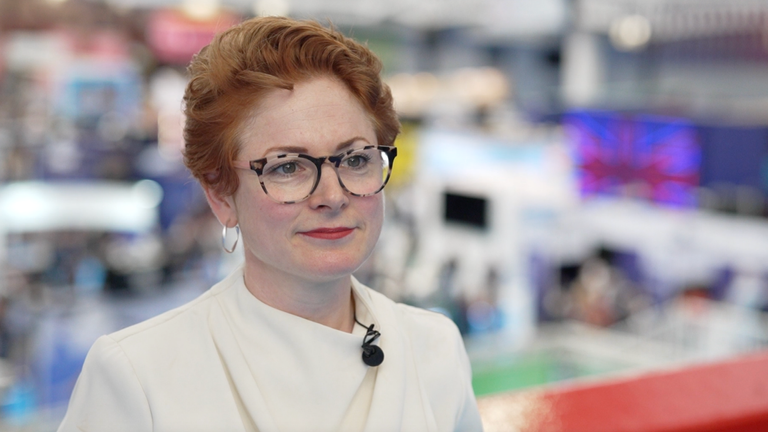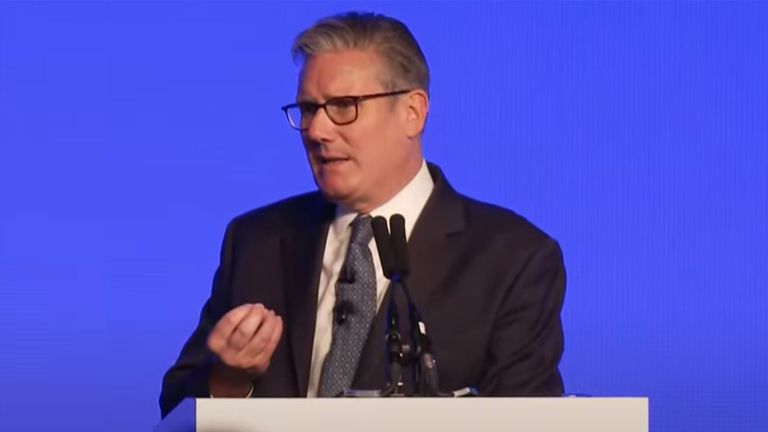President Trump’s “anti-migrant rhetoric” may be helping the UK’s tech industry, according to tech executives.
“If the US continues its foreign policy, anti-migrant rhetoric, it’s going to put founders off and operators off,” said Husayn Kassai, a founder of the UK’s AI Hub and the chief executive of Quench AI.
“Already you have some students that were considering moving to the US 1749591782 considering the UK, and you have tech founders and operators, which are just as important, again increasingly considering the UK relative to the US,” he said to Sky News during London Tech Week.
His comments come amid a US political landscape in which immigrant communities across America have been surprised at the speed and ferocity with which new policies, including crackdowns and deportations, have been enacted in Mr Trump’s first 100 days in office.
In the last few days, some in California – the home of tech hotspot the San Francisco Bay area – have been taking direct action in protest at the Trump administration’s actions.
After selling his previous company Onfido for a record amount last year, Mr Kassai decided to found his new start-up in the UK because of its talent pool.
“In the US, there’s talk of there being more talent, more AI talent in particular. That’s changing because of some of the US politics.
“[Also,] in places like San Francisco, there may be more AI talent but it’s not accessible to early-stage startups,” he added, saying that’s because huge companies like Meta and Google are able to offer such high salaries.
Talent is often the deciding factor in where companies move their operations, according to one expert whose job it is to persuade them to come to the UK.
Laura Citron, chief executive of London and Partners, said she often talks to international founders thinking about where to expand globally.
“Making sure that businesses feel […] it will be easy for them to bring international talent into the market, that will always be the most important factor.”
“Particularly at the moment, with what’s happening geopolitically, that fundamental strength of London in openness and being inclusive and welcoming has suddenly really shot up in people’s importance,” she said.
The UK is the third-largest AI market in the world, according to the government, only beaten by the US and China.
Yesterday, Jensen Huang, chief executive of NVIDIA predicted that within ten years, “every industry in the UK will be a tech industry”.
The government seems to be banking on that, with investments being announced like yesterday’s unveiling of a £187m AI training plan for school students and schemes to encourage infrastructure like data centres to be built around the UK.
In January, the government claimed that, if AI is “fully embraced”, it could bring £47bn to the economy every year.
But although President Trump’s changes to US immigration policy may push more tech workers to the UK, the US still has its draw – and cash.
Read more:
UK to become ‘AI maker not taker’, says PM
How much cash will Reeves give each department?
“When we’ve been looking to raise [funding], some people that I’ve spoken to said: ‘You should go to America because they would be talking in millions’,” said Jemma Bowles, founder of endometriosis support app Endi.
She is currently staying in the UK because her knowledge of the NHS makes it more practical but “I’m not saying no to it,” she said.
“We’ll just see what happens.”
This week alone, US companies have taken over two UK tech businesses, and Mr Kassai doesn’t seem surprised.
“Shareholders, investors, board members are going to find the highest bidder and the US tends to pay more,” he said.
“There’s four times as much capital invested into startup companies than there is in the whole of Europe, so naturally when it comes through a sale, the US is often able to pay a higher price.”
However, he doesn’t think that will be the case forever.
“The US is going to lose its edge. Historically, it’s had four times as much financial capital to invest in startups than Europe, but AI has meant that you don’t need as much money to build big companies, and as a result, the US loses its advantage.”





